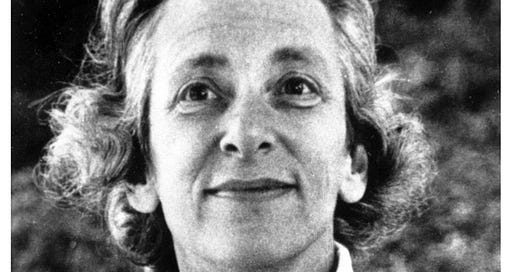The Guns of August: An Opening Paragraph for the Ages
History as Essential Storytelling, with Some Thoughts from Iggy Pop

Stories are how we understand the world. From Greek mythology to Russian fairy tales to paperbacks by “the doyen of crime writers,” Mary Higgins Clark. Somehow, we’ve been conditioned to think of history as something different, as if the recorded events of the past might not be just as worthy of our time. What makes for a really good story is in the telling. It’s the vivid details. The suspenseful pacing.
The Guns of August, a vigorous account of the days leading into the First World War, is a hefty and velvety book that reads like a spy novel. A book of great storytelling. It opens with a chapter simply titled, “A Funeral.” Edward VII’s cortege is the starting point, the place where we’re introduced to the key personalities behind Europe’s descent into war. We know what and whom the story is about.
The opening paragraph is the perfect entry but also the perfect, “hey, read this.” In a world flooded with information, where TBR— as in TBR pile —is the instantly recognizable shorthand for “to be read,” the handful of lines are disproportionately outsized in both their beauty and their import. The paragraph has a reputation and a power all its own.
Weighing in at 167 words, the paragraph tells a reader everything about Barbara Tuchman and what she sought to accomplish, and did accomplish, with her writing. “In history and biography, ‘the writer’s object is… to hold the reader’s attention.’” She wanted “the reader to turn the page and keep on turning to the end.”
The writer
She was not considered a historian. Not initially. Barbara Tuchman did not have a Ph.D., nor did she hold any academic position. Those critiques were lobbed at her when, in 1962, she published the “definitive Pulitzer Prize winning recreation of the powderkeg that was Europe during the crucial first thirty days of World War I.” With an undergraduate degree from Radcliffe, she understood how the Eisenhower-era defined her. She used the word “housewife.” She also stared down her critics. Not having the expected academic credentials wasn’t a limit for her: “It’s what saved me…If I had taken a doctoral degree, it would have stifled any writing capacity.”
You could say she was a woman who transgressed.
Her goal was to bring history, previously overly laden with dates and facts and other minutiae and detailed in writing that suggested the words parched and arid, into a frothy, Emerald City- Technicolor. She was an inspiration to Robert Caro (Pulitzer-Prize winning biographer of LBJ and Robert Moses) who, on reading the opening paragraph of The Guns of August, thought: “That’s what history should be. That’s what I want to do.”
Her work, painstakingly detailing the actions of those statesmen who held sway in London and Paris and St. Petersburg in the days before the First World War, with her ultimate observation that “[w]ar is the unfolding of miscalculations,” was said to have influenced JFK during the Cuban Missile Crisis.
Barbara Tuchman wasn’t flashy. She didn’t have the panache of Truman Capote or wear the white suit of Tom Wolfe, nor did she write on topics like the sexual revolution from the vantage of Playboy’s 25th Anniversary gala, as did Gay Talese. She wrote of German war planes invading Belgium and France and the exact workings of the Schlieffen Plan (a military tactic aptly named for the Prussian-born Field Marshall, Alfred von Schlieffen) and her book was an immediate bestseller. As much as any of the pioneers of New Journalism, her talent and her craft, stunningly on display in the opening paragraph of The Guns of August, set the tone for what a certain type of writing could be.
If nothing else, history should both educate and move us.
The reader
I have no idea if Iggy Pop ever read Barbara Tuchman, but sometime after reading an abridged version of Edward Gibbon’s History of the Decline and Fall of the Roman Empire, he wrote a critique that was published in the peer-reviewed journal, Classics Ireland (1995). As he’d recently received the unabridged three-volume set from his wife, his essay included a coda, where he describes his joy in reading the classic; “the wonderful language, organization and scope of the masterwork,” and concludes with his list of the gifts from a reading of the full text:
Barbara Tuchman herself had asked, “Is Gibbon necessarily less of an artist in words than Dickens?” It’s as if Barbara Tuchman had been sitting right there. As if they’d been together “in dialogue” on an imaginary podcast.
Episode Notes
This Week’s Recommended Watching
This Week’s Music
"(What A) Wonderful World" by Sam Cooke (on Amazon Music and Spotify)
Further Reading
Books of Influence: The Guns of August
Library of America on Barbara Tuchman
The Guns of August showed me how history could bring the past to life
The Hoover Institution on The Guns of August
Just One More Thing
If you could recommend only one thing—let us know. What’s on your mind?











My recommendation is the German novel Kairos—it’s about an older man having an affair with a younger woman but set against backdrop of East Berlin in the late ‘80s
What a paragraph!! Adding to that TBR pile you mentioned :)